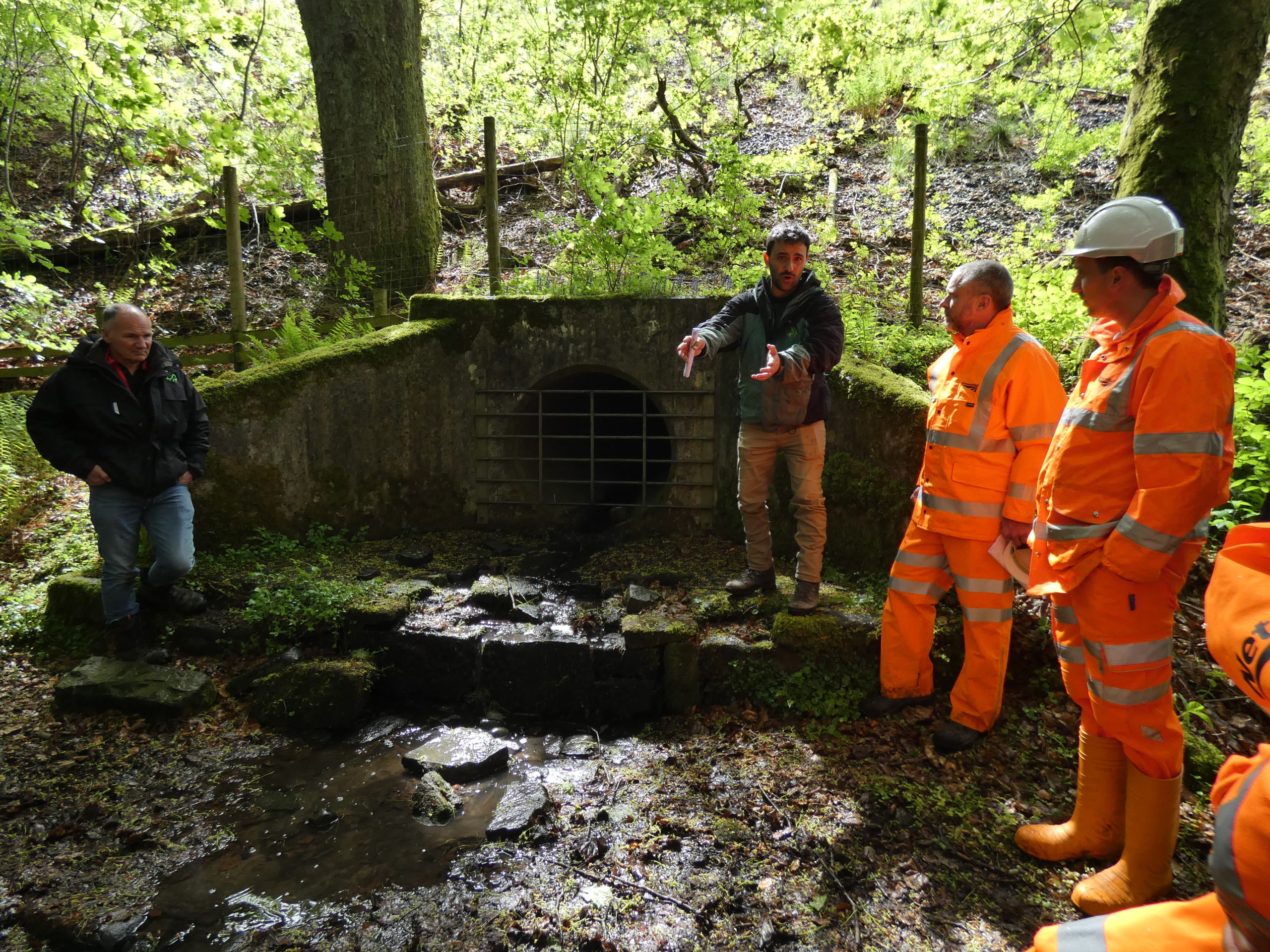
(Image credit: Network Rail)
TWO of Scotland’s ‘largest landowners’ are set to work more closely to manage the risks and challenges that both have on land where they are neighbours.
Forestry and Land Scotland met with Network Rail to discuss the collaboration, which the rail organisation said could result in financial savings for the taxpayers as well as improved resilience and reliability on the country’s rail network.
As well as day-to-day operational matters such as track access and supervision and the removal of dead or diseased trees adjacent to operational railway, the discussions also covered integrating work programmes to deal with wider issues such as integrated drainage to improve water management, reducing the risk of slope failure or rock fall.
Network Rail said that the discussion could also lead to the potential for greater passenger enjoyment on scenic railway routes, by improving views on journeys through strategic planning and management of trees beyond the railway corridor.
The two landowning organisations met at Forestry and Land Scotland’s Dunkeld base to hear from a range of speakers and to see first-hand different sites where mutual interest is opening up the potential of joint working.
Jonathan Callis, senior asset engineer for Network Rail Scotland, commented, “Where we have two large landowners with so many areas of mutual interest, there is real value in taking a step back from the day-to-day interaction to look at what we can be doing better, different or more efficiently.
“Gaining an insight into the other’s operational challenges and areas of experience and expertise will lay the foundations for closer working relationships that will help avoid incidents and costs and to better utilise resources.
“Government departments with areas of mutual interest should be talking more like this. It is sensible to know and understand where even little changes in the way we both operate, can have a big impact. It matters as we are both funded by the Scottish taxpayer and if we can do things more efficiently there is a fiscal benefit as well as potential to improve resilience across both organisations.”
Dave Pool, Forestry and Land Scotland’s national utilities manager, added, “It was really useful to meet with the teams at Network Rail to discuss our common tasks and common interests.
“We have much we can share in terms of knowledge and expertise, and it was good to note that safe working practices are a priority for both organisations.
“There is clearly a lot of benefit to be had from working together. For example, Network Rail teams might use our forest road network to get to remote rural locations in emergencies, or to deliver or remove materials, and we might be able to find ways to safely access valuable crops that are close to railway lines.
“The discussions have been very informative for both organisations and seeing things from the railway perspective will certainly help to inform our future planning processes and forestry operations.”








